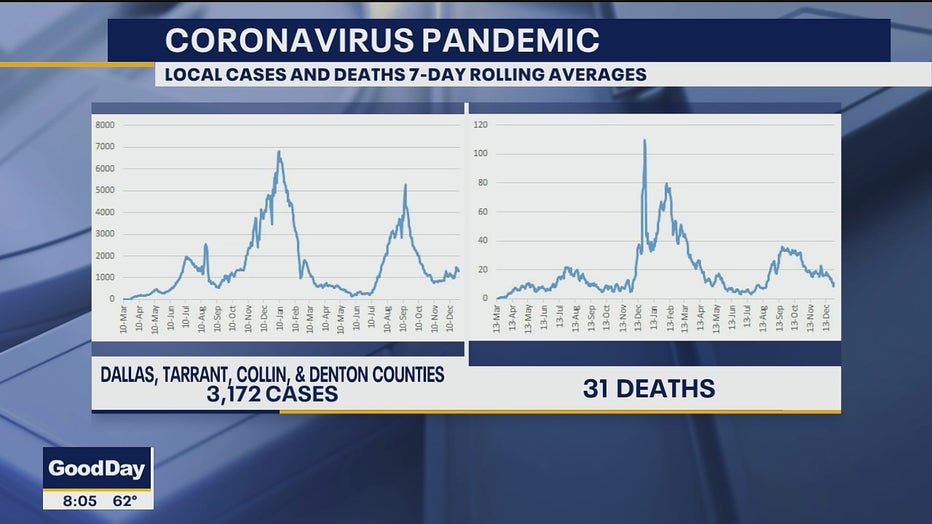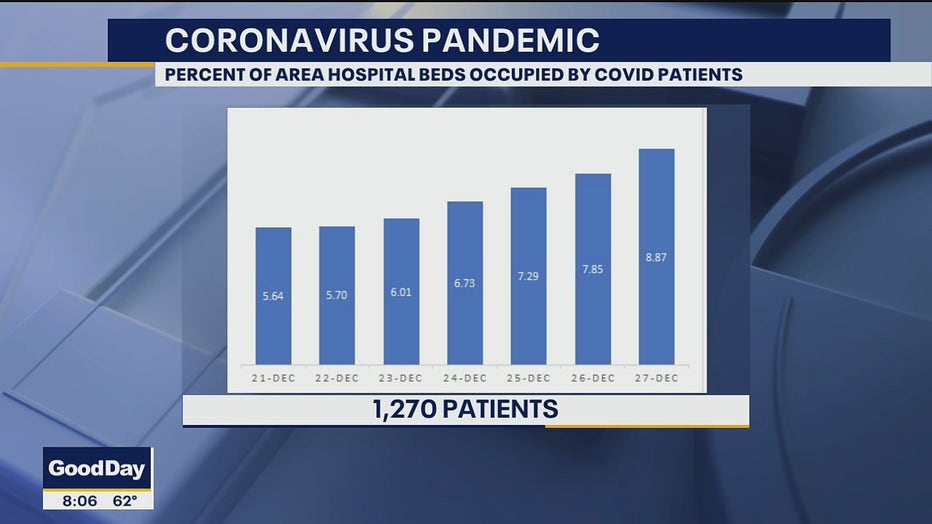Dallas County raises COVID-19 threat level to red as omicron variant spreads
DALLAS - The spread of the omicron variant has pushed Dallas County’s COVID-19 threat level back up to red. It means there’s a high risk of transmission in the community.
The last time the threat level was red was back in August when the delta variant drove a spike in cases.
The county’s public health committee is encouraging people to limit gatherings, wear a mask in public places and get vaccinated and boosted.


Parkland Hospital’s chief medical officer is also sounding the alarm, encouraging people to protect themselves from the omicron variant.
"If I could give you a bulletproof vest, it doesn’t protect your entire body but it sure as heck protects the important parts of your body. Why wouldn’t you avail yourself of that? Protection is the same thing here. Why would you not protect yourself if you could? It is still the best way of preventing you getting into my hospital," said Dr. Joseph Chang, Parkland’s CMO.
Dr. Chang said cases are rising fast. His hospital has seen the number of COVID-19 patients double in less than a week, and it will open its third COVID-19 ward by next week.
The number of new cases may not peak for several more weeks and Parkland expects it will have to open several more COVID-19 wards.
Medical expert urging people protect themselves against omicron
Weary healthcare workers at Parkland Hospital are bracing for more COVID-19 patients as the omicron variant of COVID-19 spreads. Good Day talked to Dr. Joseph Chang, the chief medical officer at Parkland Health. He said the number of coronavirus patients at his hospital has doubled over the past week.
Dr. Chang is concerned about the impact on healthcare workers.
"Even with such a high vaccination rate, it’s just going to happen with unvaccinated and with breakthrough infections. And so, we are certainly seeing our staff absenteeism going up again," he said.
Data from UT Southwestern shows the percentage of positive COVID-19 tests in Texas right now is above 21%. Dr. Chang said that data is lagging, and he believes the true positivity rate is closer to about 40%.
New guidance from the Centers for Disease Control says infected people without symptoms can isolate for five days instead of 10.
Dr. Chang said he trusts that decision is based on science and believes it will help keep the hospital staff for those who do have life-threatening symptoms.
READ MORE:
Apple closes 2 Dallas stores due to COVID-19
Texas infusion centers are running out of monoclonal antibody treatments to fight COVID-19

